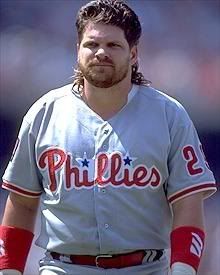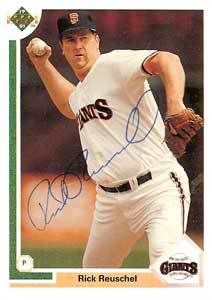I found these comments by O44 on another thread and thought that they deserved a place of their own:
"Last year was talking to a former winning world series manager ...he said that every year the organization sent him better athletes...
...but worse baseball players. Guys who could run and jump, but didn't fully understand the game.
I call it "Sparqball". Not looking for baseball players...but rather guys who fit certain physical athletic perfomance profiles. To an extent his has always gone on (see "the look") but with more and broader "Combine" testing it will only get worse."
...
O44's comments were followed by these by TRhit:
observer44
"I totally agree----we see kids who are great athletes who come to us but when it comes to baseball acumen they are severely lacking---in the game of baseball athleticism can only take you so far?"
...
These comments reminded me of an email exchange I had a while back with someone who knows the coach of a summer woodbat team. Here are some of his comments:
"Just today I spoke with (xx) and we talked about his new coaching gig. He is coaching a team in the (X) Collegiate League. We shared so much of the same opinions. He has players from high profile D-1 schools that have no understanding on the true fundamentals of the game.
All of this stuff are things that should be taught but unfortunately there are coaches in positions that don't know better.
Like................
1. Runner on second with less than two outs...............ground ball hit at the SS. The runner should only break for third if the ball is to his left side or towards the second base side of him. I see kids all the time try to take third when the ball is just to the right of them and get thrown out at third base.
Ok, let's try this one............
2. Middle of the line-up left handed hitter at the plate. Runner on first that has speed. At the college and pro level, most good runners have a green light in the right situations to run. Runner steals second with 2 outs...........
Now, this gets tricky but listen.................
Runner on first was being held on by first baseman which left a big hole on that side of the infield. Well now that the runner is on second, the hole is gone. Yeah, the runner on second is now in scoring position, but this also leaves the base open for a intentional walk.
Basically, your chances of taking the bat out of a your big boppers hands has drastically increase. This is something an advanced runner should know and stay put on first base.
On a more basic level
3. Just last night, I went to a (XX) league game to watch an old player I coached and visit his parents. Runner on second, home team up by 1 run which is in the field. Base hit up the middle and centerfielder has no chance at home. But..........he throws there anyway and gives the cutoff man no chance.
Runner that hit it takes second because of throw home and......................
Now what do you have..............winning run on second that is in scoring position.
That is basic baseball 101.................
But it happened last night at a game that is supposed to be played by big time D-1 players. Funny thing was, I watched the coach to see if he would say anything and I honestly don't think he had a clue what just happened."
Original Post






